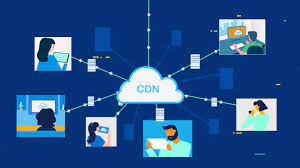Content delivery networks may aid websites in a variety of ways when deployed correctly. CDN solutions offer several benefits and are available at a variety of pricing points to accommodate projects of all sizes.
The following are key areas where CDNs may improve:
- Performance
- Reliability
- Security
1. Performance
The content delivery network provides your web server extra time to finish the rest of the request by providing data from a location near to where the request originated. This extra time improves the overall speed of your site, resulting in a better user experience.
CDNs lessen resource strain on your web server by absorbing some of the demand from your website users. This implies you can offer a greater number of website users while using fewer server resources.
2. Reliability
CDNs employ many servers to cache your website’s content, which helps with load balancing. If your webserver receives an excessive number of requests, it will attempt to process them all. Whenever the request for system resources reaches the maximum of the server, your website will begin to fail.
All requests are sent through a webserver when using a content delivery network. It divides requests and transmits them to several CDN servers, allowing your site to provide a significantly better level of resilience.
3. Security
CDN systems aid website security in a variety of ways. They can protect against DDoS assaults, SQL injections, and CSS attacks, among other things. While the number of safeguards provided by CDNs varies, one common feature is a Web Application Firewall (WAF).
WAFs act as a monitoring station for the CDN, screening all traffic. They can identify and stop malicious assaults, as well as intelligently analyze traffic patterns to discover additional dangers.
Conclusion
The burden on web hosting resources is greater than ever before, thanks to an expanding number of global visitors. Even if you aren’t concerned about this, a CDN may dramatically improve the performance of your website, particularly for users who aren’t located near your server.
With the rising demand for websites to run faster, a CDN is a crucial component of boosting your website’s performance
FAQ
1. Is A CDN Required?
No, you don’t need a content delivery network to run your website. Using one, on the other hand, has a number of advantages, including improved performance, dependability, and security. They’re also quite easy to use, and you can rapidly connect them with your website if necessary.
2. How Can A CDN Help Websites Load Faster?
By providing cached data from locations near to where requests originate, CDNs increase website performance. This functionality has the potential to greatly reduce latency, which contributes to long page load times.
3. How Can I Tell Whether My CDN Is Up And Running?
Requests are routed through specialized nameservers by the majority of CDNs. Perform a whois check on your domain to see if your CDN is active. Everything is good if the nameservers in the information are the ones assigned by the CDN provider.


